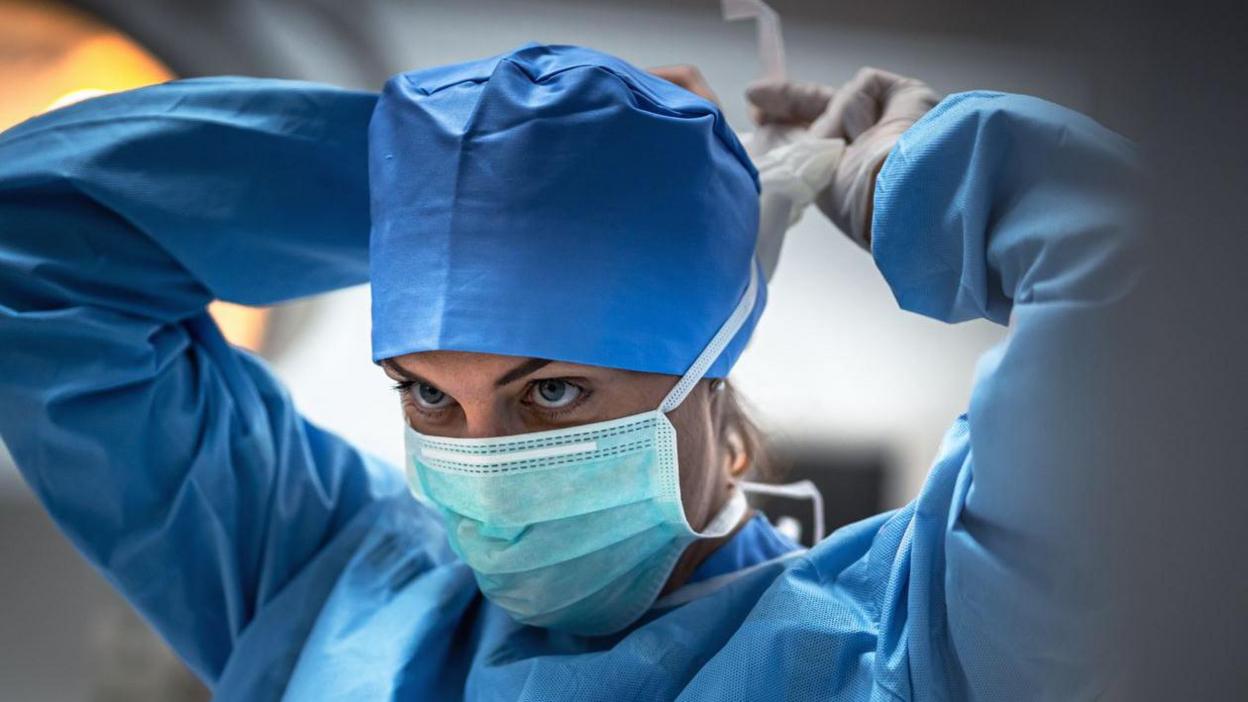Hospital washes own PPE to cut waste and emissions

Most PPE is incinerated after use
At a glance
A mobile laundry system for reusable PPE is operating for the first time in the south-west of England at a Cornwall hospital
St Michael’s Hospital in Hayle is using reusable facemasks, surgical gowns and operating theatre drapes which are being laundered in Truro instead of a more centralised NHS location
Project bosses said the work was a bid to cut down on single-use PPE, and also reduce waste and emissions in such items' disposal
- Published
A mobile laundry system that enables reusable personal protective equipment (PPE) to be washed more locally is operating for the first time in the south-west of England in a Cornwall hospital.
The University of Exeter said the modular system could wash certain PPE items up to 75 times each.
It said the work was a bid to cut down on single-use PPE, and also reduce waste and emissions in the items' disposal.
St Michael’s Hospital in Hayle is employing reusable facemasks, surgical gowns and operating theatre drapes.
Hospital recycles 'tonne' of PPE each month
- Published30 March 2021
Supplier of 'not fit for use' Covid PPE earns £47m
- Published26 May 2023
How hospitals could avoid future PPE chaos
- Published23 February 2023
Currently, most reusable PPE and regulated medical textiles had to be washed in "large centralised laundry facilities", the university said, external.
Such centralisation "aided industrial efficiencies but can lead to considerable time delays, transport and carbon costs with increasing distance from the centres", it added.
The mobile modular system could be transported on trucks and be built on site in three months, project bosses said.
The laundry from the hospital was being washed at a facility in Truro, they added.
The system has been developed by sustainable medical textiles firm Revolution-Zero, led by Dr Tom Dawson, a visiting research fellow at the university.
He said such a system could go a long way to helping to eliminate medical textile waste.
He said about 55,000 tonnes of medical textiles, including single-use PPE, was incinerated nationally a year.
He said it was hoped that the laundry system and reusable PPE could cut such waste between "95% and 99%", which was "immensely satisfying".
Follow BBC News South West on Twitter, external, Facebook, external and Instagram, external. Send your story ideas to spotlight@bbc.co.uk, external.